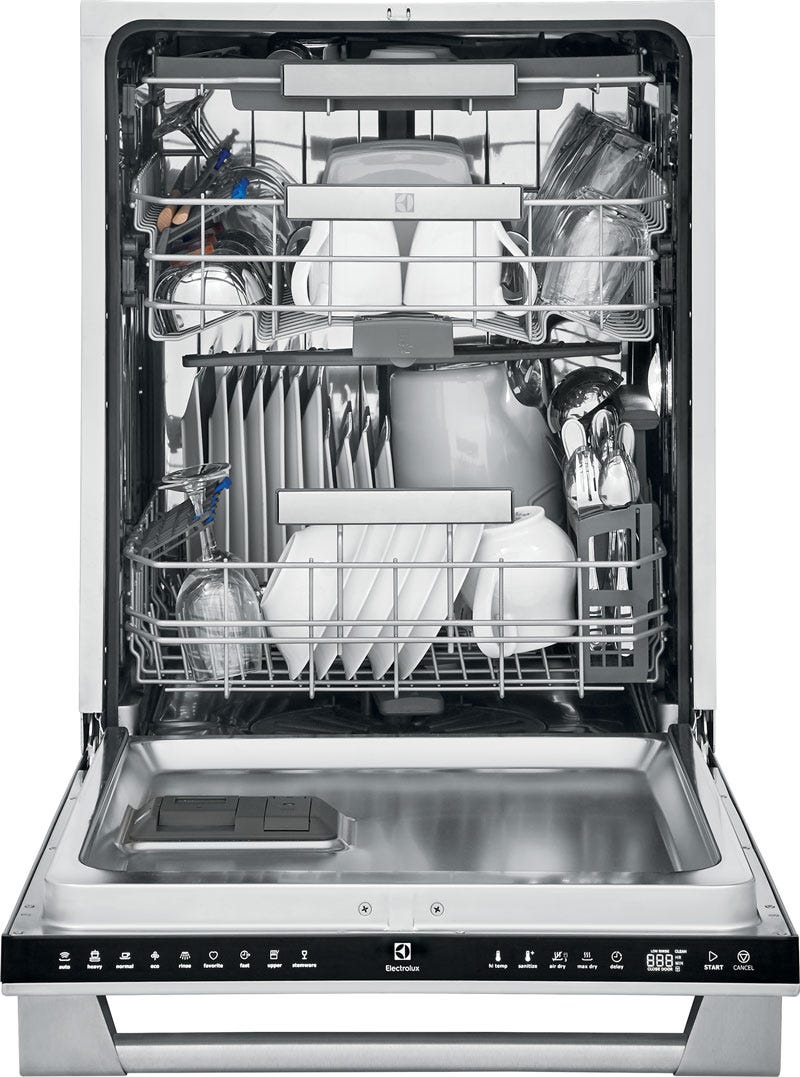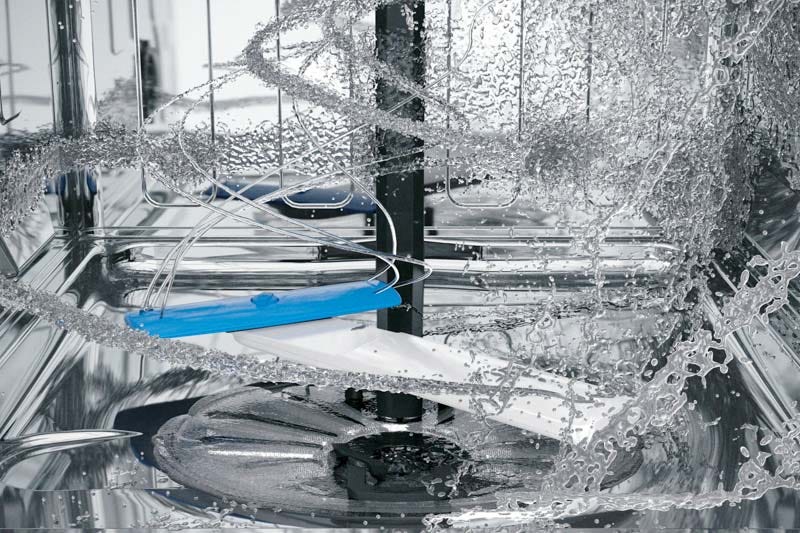Guide to Buying a Dishwasher
A dishwasher is often the hardest working appliance in the kitchen, saving you time and energy every day. Trail Appliances offers a range of dishwashers from compact models for tiny spaces to full-size appliances with all the latest features. Our guide will help you choose the perfect dishwasher for your home.
Will Your Dishes Fit?
Dishwashers feature tines to keep your dishes upright and separated as they wash. Most compact and European models are sized for European dishes, which are usually smaller than dishware sold in North America. Other models feature flexible racks, which allow you to make adjustments.
Features and Technology
Most modern dishwashers are designed to clean dishes quickly, quietly and efficiently.
Here are some features to look out for.
Energy-Efficiency
Look for dishwashers with an ENERGY STAR® symbol – they use less electricity than other models and can help to reduce your utility bills. If your electricity usage is calculated on time-of-use rates, a dishwasher with a delayed start feature may be handy – you can set the wash to begin at a time when energy is cheaper.
Stainless Steel or Plastic?
Models with plastic interiors are usually more cost-effective, but they retain less heat, which can make them less energy-efficient. Stainless steel models tend to be more durable and hygienic.
Adjustable Racks
Get more out of your dishwasher by choosing a model with a third rack, or one with adjustable spacing to allow for odd-sized dishes.
Enhanced Cycles
Some dishwashers feature low-water usage, which reduces the amount of water used in each cycle. Others offer a sanitize option, which uses high heat to kill harmful bacteria.
Quiet Models
If you're looking for a quiet dishwasher, choose a model rated 44 decibels or lower (normal conversation takes place at around 60 decibels). This is a good option for open plan kitchens, where the noise from your appliances may be competing with the TV.
The Importance of Water Quality
If you live in an area with hard water, you may notice that your dishwasher doesn't work as well as it should.
What is Hard Water?
Hard water occurs naturally. As water travels to your home it comes into contact with natural minerals, most commonly calcium and magnesium, which are dissolved and held in the water. Once water has accumulated enough dissolved mineral it becomes "hard". The more minerals dissolved, the harder the water.
What Hard Water Does to Your Dishes
Hard water prevents water from mixing with detergent to form an effective cleaning agent. The minerals bond with the soap to create a detergent curd that doesn’t easily rinse away, leaving a cloudy white residue or spots on your dishes.
What Hard Water Does to Your Dishwasher
When hard water evaporates, dissolved calcium and magnesium are left behind leaving a white, chalky residue called scale. Over time, scale builds up in your water pipes and water-using appliances, restricting water flow, reducing water pressure and causing the eventual failure of expensive parts like pumps and heating elements
How a Water Softener can Help:
A water softener works by removing the calcium and magnesium dissolved in water. This can help to reduce mineral deposits in your appliance, resulting in cleaner dishes and a longer lasting machine. Talk to one of our Online Product Experts on Live Chat to find out more.
Good to Know
Measure Your Space
Before choosing a dishwasher, be sure to measure the space available in your kitchen, including entrances and doorways for delivery.
Need Some More Help?
Speak with one of our Product Experts – we'll help you choose the right dishwasher for your household.




